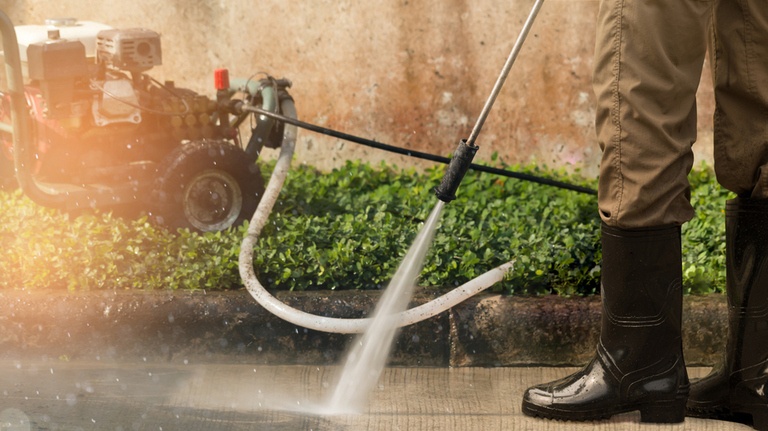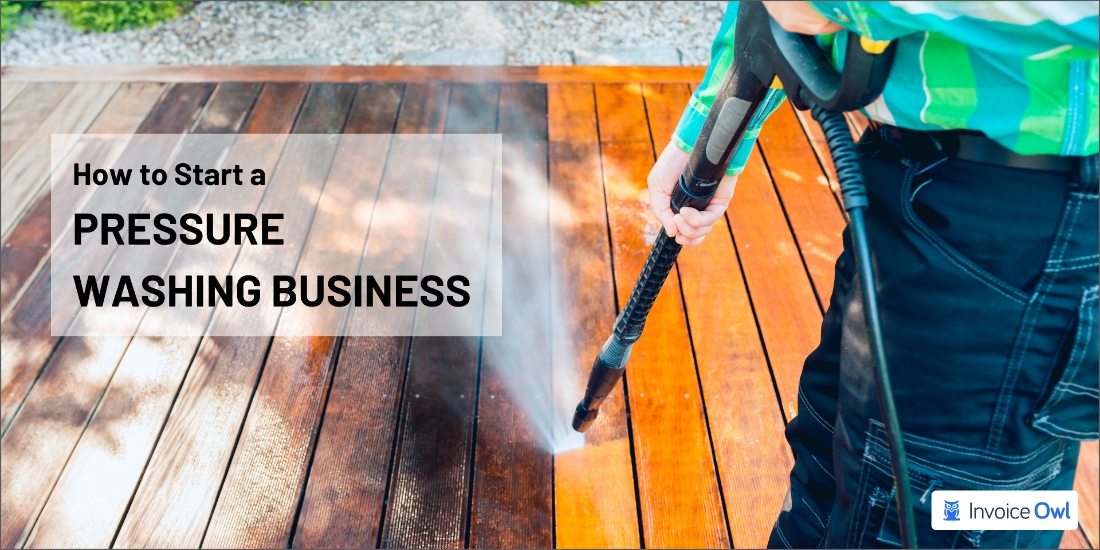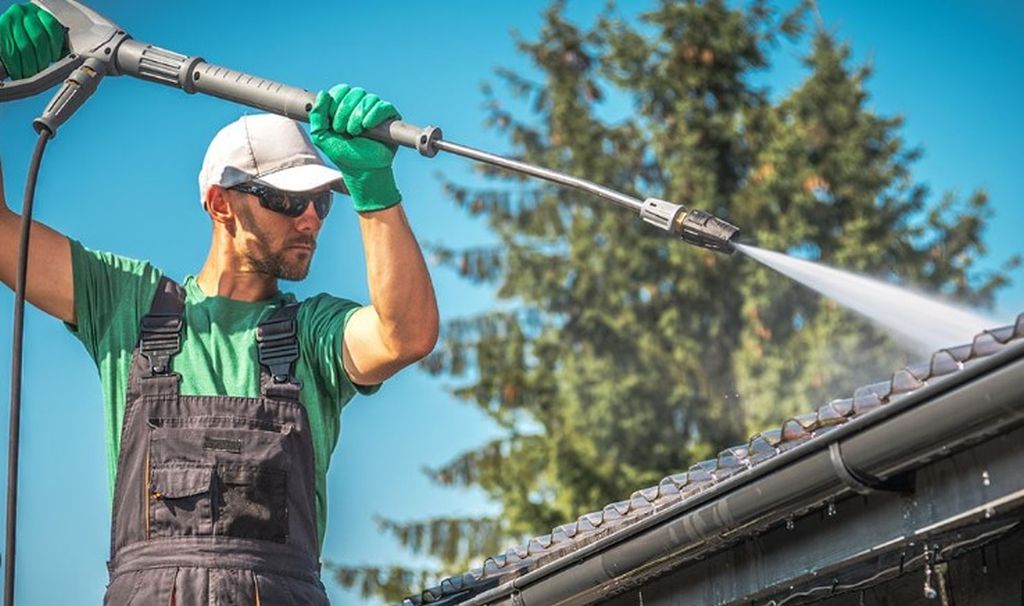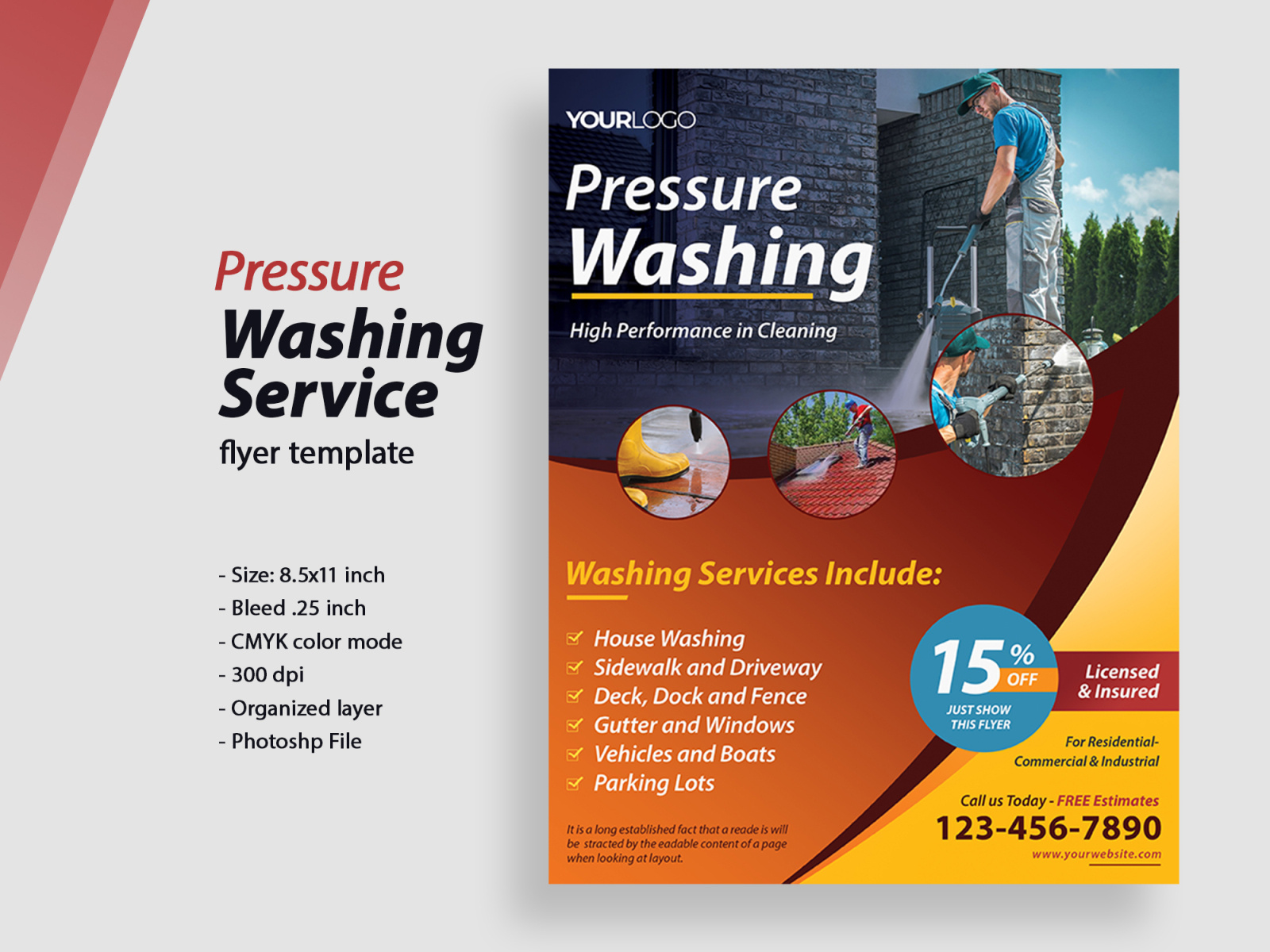Is a Pressure Washing Business Right for You?
Starting a pressure washing business can be a lucrative venture, but it’s essential to carefully consider the pros and cons before making a decision. The pressure washing industry is growing rapidly, driven by increasing demand for exterior cleaning services from homeowners, commercial property owners, and municipalities. However, like any business, it’s crucial to weigh the advantages and disadvantages to determine if it’s the right fit for you.
One of the primary benefits of starting a pressure washing business is the potential for high profit margins. With the right equipment and marketing strategies, you can offer competitive pricing and still maintain a healthy profit margin. Additionally, the flexibility of a pressure washing business allows you to work on your own schedule, choosing the jobs and clients that best suit your needs.
However, it’s also important to consider the potential drawbacks. Starting a pressure washing business requires a significant investment in equipment and marketing, which can be a barrier to entry for some entrepreneurs. Furthermore, the physical demands of the job can be intense, requiring long hours of manual labor in varying weather conditions.
To make an informed decision, it’s crucial to evaluate the pros and cons of starting a pressure washing business carefully. This article will provide an overview of the advantages and disadvantages of starting a pressure washing business, including factors to consider such as market demand, competition, and equipment costs. By the end of this article, you’ll have a better understanding of whether a pressure washing business is right for you.
How to Evaluate the Pros and Cons of a Pressure Washing Business
Evaluating the pros and cons of a pressure washing business requires careful consideration of several key factors. Before making a decision, it’s essential to assess the market demand, competition, and equipment costs associated with starting a pressure washing business. This will help determine whether the potential benefits outweigh the drawbacks and whether the business is viable in the long term.
Market demand is a critical factor to consider when evaluating the pros and cons of a pressure washing business. Assessing the demand for pressure washing services in the local area will help determine whether there is a need for the business and whether it has the potential to generate sufficient revenue. Researching the competition is also crucial, as it will help identify gaps in the market and opportunities to differentiate the business from existing competitors.
Equipment costs are another significant consideration when evaluating the pros and cons of a pressure washing business. The cost of purchasing and maintaining high-quality pressure washers, hoses, and other equipment can be substantial. However, investing in the right equipment can also help to increase efficiency and reduce costs in the long term. It’s essential to weigh the costs against the potential benefits and consider financing options or leasing equipment to minimize upfront costs.
Other factors to consider when evaluating the pros and cons of a pressure washing business include the physical demands of the job, the need for specialized training and certifications, and the potential for environmental concerns. Assessing these factors will help determine whether the business is a good fit for the individual’s skills, experience, and goals.
By carefully evaluating the pros and cons of a pressure washing business, individuals can make an informed decision about whether to start a business. It’s essential to consider multiple factors and weigh the potential benefits against the drawbacks to determine whether the business has the potential to be successful and profitable.
Some key questions to ask when evaluating the pros and cons of a pressure washing business include:
- What is the demand for pressure washing services in the local area?
- Who are the main competitors, and how can the business differentiate itself?
- What are the equipment costs, and how can they be minimized?
- What are the physical demands of the job, and are they manageable?
- What specialized training and certifications are required, and how can they be obtained?
- What are the potential environmental concerns, and how can they be mitigated?
By asking these questions and carefully evaluating the pros and cons of a pressure washing business, individuals can make an informed decision about whether to start a business and create a successful and profitable venture.
The Benefits of Starting a Pressure Washing Business
Starting a pressure washing business can be a lucrative and rewarding venture, offering several benefits for entrepreneurs. One of the primary advantages of a pressure washing business is the potential for high profit margins. With the right equipment and a solid marketing strategy, pressure washing businesses can generate significant revenue, particularly during peak seasons.
Another benefit of starting a pressure washing business is the flexibility it offers. Pressure washing businesses can be operated on a part-time or full-time basis, making it an ideal venture for individuals who want to supplement their income or transition into a new career. Additionally, pressure washing businesses can be operated from a home office or a small storefront, reducing overhead costs and making it easier to manage.
The ability to work outdoors is also a significant advantage of starting a pressure washing business. Many people enjoy working outdoors and find it more fulfilling than being confined to an office. Pressure washing businesses also offer the opportunity to work with a variety of clients, including homeowners, commercial property owners, and government agencies, which can help to keep the work interesting and diverse.
Successful pressure washing businesses also have the potential to expand into related services, such as gutter cleaning, window cleaning, and deck restoration. This can help to increase revenue and provide a competitive edge in the market. Furthermore, pressure washing businesses can be operated with a relatively small team, making it easier to manage and maintain a high level of quality control.
Examples of successful pressure washing businesses include companies that specialize in cleaning large commercial properties, such as shopping centers and office buildings. These businesses often have a large team of technicians and a fleet of equipment, which enables them to handle large-scale cleaning projects efficiently and effectively.
Other successful pressure washing businesses focus on residential cleaning services, such as driveway and sidewalk cleaning, and deck and patio cleaning. These businesses often have a smaller team and may operate from a home office or a small storefront. However, they can still generate significant revenue by offering high-quality services and building a strong reputation in the community.
Overall, starting a pressure washing business can be a rewarding and profitable venture, offering several benefits for entrepreneurs. With the right equipment, marketing strategy, and team, pressure washing businesses can generate significant revenue and provide a high level of job satisfaction.
Some of the key benefits of starting a pressure washing business include:
- High profit margins
- Flexibility in terms of part-time or full-time operation
- Ability to work outdoors
- Opportunity to work with a variety of clients
- Potential to expand into related services
- Ability to operate with a relatively small team
By considering these benefits and weighing them against the pros and cons of pressure washing business, entrepreneurs can make an informed decision about whether starting a pressure washing business is right for them.
The Drawbacks of Starting a Pressure Washing Business
While starting a pressure washing business can be a lucrative and rewarding venture, there are also several drawbacks to consider. One of the primary disadvantages of a pressure washing business is the physical demands of the job. Pressure washing requires manual labor, including lifting and carrying heavy equipment, and working in a variety of weather conditions. This can be physically demanding and may lead to injuries or fatigue.
Another drawback of starting a pressure washing business is the need for specialized equipment. Pressure washing equipment can be expensive, and it requires regular maintenance to ensure it is functioning properly. This can be a significant upfront cost, and it may also require ongoing expenses for repairs and replacement parts.
Environmental concerns are also a significant consideration for pressure washing businesses. The use of high-pressure washes and cleaning solutions can have a negative impact on the environment, particularly if not disposed of properly. This can lead to regulatory issues and damage to the business’s reputation.
Additionally, pressure washing businesses may face challenges related to liability and insurance. As a business owner, you may be liable for any damage or injuries caused by your equipment or employees. This can be a significant concern, particularly if you are working with high-pressure equipment or in areas with high foot traffic.
Other drawbacks of starting a pressure washing business include the potential for seasonal fluctuations in demand, the need for ongoing training and certification, and the risk of equipment theft or vandalism. These challenges can make it difficult to maintain a consistent income and ensure the long-term success of the business.
Examples of common challenges faced by pressure washing business owners include:
- Physical demands of the job, including manual labor and working in a variety of weather conditions
- Need for specialized equipment, including high-pressure washes and cleaning solutions
- Environmental concerns, including the potential for regulatory issues and damage to the business’s reputation
- Liability and insurance concerns, including the risk of damage or injuries caused by equipment or employees
- Seasonal fluctuations in demand, including the potential for reduced income during the off-season
- Need for ongoing training and certification, including the potential for additional expenses and time commitments
- Risk of equipment theft or vandalism, including the potential for significant financial losses
By understanding these drawbacks and considering the pros and cons of pressure washing business, entrepreneurs can make an informed decision about whether starting a pressure washing business is right for them.
It’s essential to weigh these drawbacks against the benefits of starting a pressure washing business, including the potential for high profit margins, flexibility, and the ability to work outdoors. By carefully considering these factors, entrepreneurs can make an informed decision about whether starting a pressure washing business is a viable and profitable venture.
Equipment Costs and Maintenance: A Significant Consideration
Equipment costs and maintenance are a significant consideration for pressure washing businesses. The cost of purchasing and maintaining high-quality pressure washers, hoses, and other equipment can be substantial. However, investing in the right equipment can also help to increase efficiency and reduce costs in the long term.
One of the most important pieces of equipment for a pressure washing business is the pressure washer itself. There are several types of pressure washers available, including electric, gas-powered, and diesel-powered models. Each type of pressure washer has its own advantages and disadvantages, and the right choice will depend on the specific needs of the business.
In addition to the pressure washer, other essential equipment for a pressure washing business includes hoses, nozzles, and cleaning solutions. Hoses and nozzles should be durable and able to withstand the high pressure of the washer, while cleaning solutions should be effective at removing dirt and grime without damaging surfaces.
To minimize equipment costs, pressure washing businesses can consider purchasing used or refurbished equipment. This can be a cost-effective option, but it’s essential to ensure that the equipment is in good working condition and meets the needs of the business.
Regular maintenance is also crucial to extend the life of the equipment and prevent breakdowns. This includes regular cleaning and inspection of the equipment, as well as scheduling routine maintenance and repairs.
Tips for minimizing equipment costs and maximizing efficiency include:
- Purchasing high-quality equipment that is designed for heavy use
- Regularly maintaining and inspecting equipment to prevent breakdowns
- Using cleaning solutions that are effective and environmentally friendly
- Investing in equipment that is energy-efficient and cost-effective
- Considering purchasing used or refurbished equipment
- Scheduling routine maintenance and repairs to extend the life of the equipment
By investing in the right equipment and maintaining it properly, pressure washing businesses can increase efficiency, reduce costs, and provide high-quality services to their customers.
Some popular brands of pressure washing equipment include:
- Karcher
- Generac
- AR Blue Clean
- Pressure-Pro
- Shark
When selecting equipment, it’s essential to consider factors such as pressure, flow rate, and horsepower to ensure that the equipment meets the needs of the business.
By carefully considering equipment costs and maintenance, pressure washing businesses can make informed decisions about their equipment needs and ensure the long-term success of their business.
Marketing and Advertising Strategies for Pressure Washing Businesses
Effective marketing and advertising are crucial for the success of a pressure washing business. With the right strategies, pressure washing businesses can attract new customers, increase revenue, and establish a strong reputation in the market.
One of the most effective marketing strategies for pressure washing businesses is the use of social media. Social media platforms such as Facebook, Twitter, and Instagram provide a cost-effective way to reach a large audience and promote services. Pressure washing businesses can use social media to share before-and-after photos, provide special offers, and engage with customers.
Online directories are another important marketing tool for pressure washing businesses. Online directories such as Yelp, Google My Business, and Angie’s List provide a platform for businesses to list their services and connect with potential customers. Pressure washing businesses can use online directories to increase their visibility, improve their reputation, and attract new customers.
Local advertising is also an effective way to promote a pressure washing business. Local advertising can include print ads in local newspapers, flyers, and door-to-door marketing. Pressure washing businesses can use local advertising to target specific neighborhoods, promote special offers, and increase brand awareness.
Other effective marketing strategies for pressure washing businesses include:
- Email marketing: Pressure washing businesses can use email marketing to send newsletters, promotions, and special offers to customers and prospects.
- Referral marketing: Pressure washing businesses can incentivize customers to refer friends and family in exchange for discounts or rewards.
- Partnerships: Pressure washing businesses can partner with other businesses, such as landscapers or contractors, to offer bundled services and increase revenue.
- Content marketing: Pressure washing businesses can create informative content, such as blog posts and videos, to educate customers and establish themselves as experts in the industry.
Examples of successful marketing campaigns for pressure washing businesses include:
- A pressure washing business that offers a discount for first-time customers and promotes the offer on social media and online directories.
- A pressure washing business that partners with a local landscaper to offer a bundled service package and promotes the partnership through email marketing and local advertising.
- A pressure washing business that creates a series of informative videos on YouTube and promotes the videos on social media and the business website.
By using these marketing and advertising strategies, pressure washing businesses can attract new customers, increase revenue, and establish a strong reputation in the market.
When developing a marketing strategy, pressure washing businesses should consider the following tips:
- Identify the target audience and tailor the marketing strategy to their needs and preferences.
- Use a variety of marketing channels to reach a wider audience.
- Create informative and engaging content to educate customers and establish the business as an expert in the industry.
- Monitor and adjust the marketing strategy regularly to ensure it is effective and efficient.
By following these tips and using the right marketing and advertising strategies, pressure washing businesses can achieve success and establish a strong reputation in the market.
Common Mistakes to Avoid When Starting a Pressure Washing Business
Starting a pressure washing business can be a lucrative venture, but it’s essential to avoid common mistakes that can lead to failure. By understanding these mistakes, entrepreneurs can take steps to avoid them and ensure the success of their business.
One of the most common mistakes to avoid when starting a pressure washing business is inadequate planning. This includes failing to conduct market research, create a business plan, and establish a budget. Without a solid plan, pressure washing businesses can struggle to attract customers, manage finances, and stay competitive.
Poor equipment maintenance is another mistake to avoid. Pressure washing equipment is expensive and requires regular maintenance to ensure it’s functioning properly. Failing to maintain equipment can lead to breakdowns, reduced efficiency, and increased costs.
Ineffective marketing is also a common mistake. Pressure washing businesses need to develop a marketing strategy that targets their ideal customer and effectively communicates their services. Without a solid marketing plan, pressure washing businesses can struggle to attract new customers and retain existing ones.
Other common mistakes to avoid when starting a pressure washing business include:
- Underestimating the competition: Pressure washing businesses need to understand their competition and develop strategies to differentiate themselves.
- Overexpanding too quickly: Pressure washing businesses need to focus on building a solid foundation before expanding their services or territory.
- Ignoring safety protocols: Pressure washing businesses need to prioritize safety and follow all necessary protocols to protect employees and customers.
- Failing to obtain necessary licenses and permits: Pressure washing businesses need to obtain all necessary licenses and permits to operate legally.
Examples of successful pressure washing businesses that have avoided these mistakes include:
- A pressure washing business that conducts thorough market research and creates a comprehensive business plan before launching.
- A pressure washing business that invests in high-quality equipment and maintains it regularly to ensure efficiency and reduce costs.
- A pressure washing business that develops a targeted marketing strategy and effectively communicates its services to attract new customers.
By avoiding these common mistakes, pressure washing businesses can increase their chances of success and build a strong reputation in the market.
Tips for avoiding these mistakes include:
- Conducting thorough market research and creating a comprehensive business plan.
- Investing in high-quality equipment and maintaining it regularly.
- Developing a targeted marketing strategy and effectively communicating services.
- Prioritizing safety and following all necessary protocols.
- Obtaining all necessary licenses and permits to operate legally.
By following these tips and avoiding common mistakes, pressure washing businesses can ensure their success and build a strong reputation in the market.
Conclusion: Is a Pressure Washing Business Right for You?
Starting a pressure washing business can be a lucrative and rewarding venture, but it’s essential to carefully consider the pros and cons before making a decision. By weighing the advantages and disadvantages, entrepreneurs can make an informed decision about whether a pressure washing business is right for them.
The pros of starting a pressure washing business include the potential for high profit margins, flexibility, and the ability to work outdoors. Successful pressure washing businesses can also provide a sense of satisfaction and fulfillment, as well as the opportunity to build a loyal customer base.
However, there are also several cons to consider, including the physical demands of the job, the need for specialized equipment, and the potential for environmental concerns. Additionally, pressure washing businesses may face challenges related to market demand, competition, and equipment costs.
By considering these factors and developing a comprehensive business plan, entrepreneurs can increase their chances of success and build a thriving pressure washing business. It’s also essential to stay up-to-date with the latest industry trends and best practices, as well as to continually evaluate and improve the business to ensure long-term success.
Ultimately, whether a pressure washing business is right for you depends on your individual circumstances, skills, and goals. By carefully considering the pros and cons and developing a solid business plan, you can make an informed decision and set yourself up for success in the pressure washing industry.
Some final tips to consider when starting a pressure washing business include:
- Conduct thorough market research and develop a comprehensive business plan.
- Invest in high-quality equipment and maintain it regularly.
- Develop a targeted marketing strategy and effectively communicate your services.
- Prioritize safety and follow all necessary protocols.
- Stay up-to-date with the latest industry trends and best practices.
By following these tips and carefully considering the pros and cons of starting a pressure washing business, you can set yourself up for success and build a thriving business in the pressure washing industry.







.jpg)